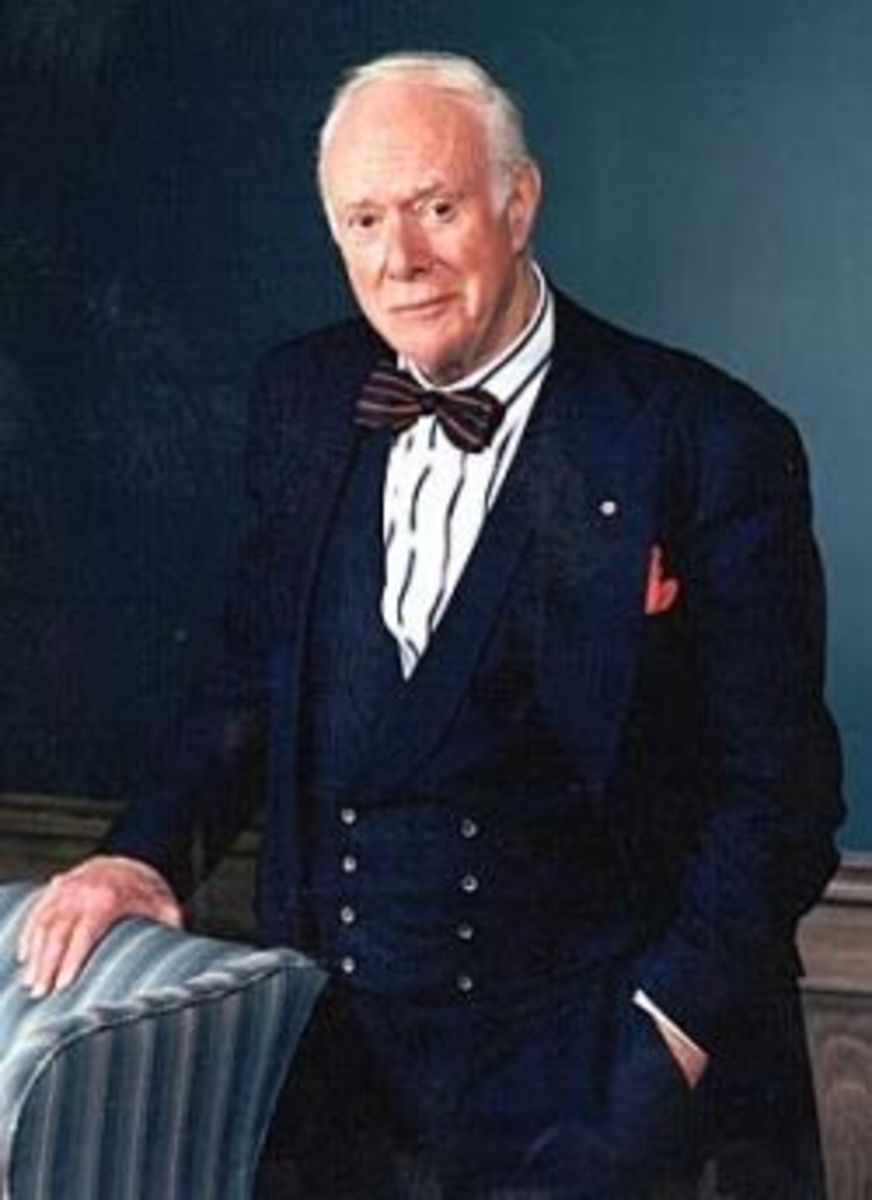Ghostwriting - A History
A Brief History of Ghost Writing
Ghostwriting/ghost writing may not be the oldest profession in the world, but it’s been around longer than you might think. For as long as there has been any such thing as a written language, there have been ghost writers. As a professional ghostwriter, I thought a little history of the profession might be interesting.
If we could track this down to the earliest known uncredited writer, we’d have to go ahead and start with Mesopotamia in the third millennium BC. At the time, a triangular instrument known as the calamus was used to make characters in moist clay. This was the first known example of anything remotely resembling the modern book. For centuries, this was the method used for keeping records. Kings and other men of stature would dictate to their writers, copyists would, well, make copies, and conservationists would preserve the copies. The people in these tablet workshops were the forbearers of the modern ghost writer.

And this ghostwriter would like to say, you’ll have to pay me a little more than a few cents a word if you want me to write hundreds of copies on stone tablets! Even hand written work is torture nowadays when we have the computer...
Next came wax tablets, in Rome, papyrus, in Egypt, and parchment, which probably originated in Pergamon by invention of King Eumenes II. There was, of course, no printing press yet, so any published work had to be copied by hand, over and over again, by teams of dozens of uncredited copyists.

The Bible
Now, if we can skip a few (hundred) years or so, we can get into what you might call the first real book featuring contributions from ghost writers, that would be… The Bible.
Specifically, the Pauline epistles, written probably around the end of the first century, was very likely written by either one or several different anonymous contributors. There still remains no generally agreed upon author in Biblical studies, which goes to show how good this ghostwriter was at putting the work first and his ego second. In fact, they haven’t even nailed down a specific time and place from whence the ghost writing author came.
Tale of the Genji
Moving forward a millennia or so, we see what many consider to be the first real novel, as we use the word today, Tale of the Genji, released sometime in the early 11th century, during the peak of the Heian Period. Tale of the Genji was supposedly written by Murasaki Shikibu, a Japanese noblewoman, however, there is plenty of debate over the issue. Stretching over more than fifty chapters, the debate regards the final pages of the book. Yosano Akiko, the first author to translate the work, was convinced that Murasaki Shikibu had finished up to the end of chapter thirty three, and then handed the book to her daughter, Daini no Sanmi, to complete the work up to chapter fifty four as a family ghostwriter.
Royall Tyler, in the introduction to his own English translation of the book, suggests chapters forty five to fifty four were most likely written by someone besides Murasaki. He goes on to suggest that this same ghost author had most likely penned a passage, a page, or a whole chapter here and there throughout the rest of the book.
Still, there are those who argue that, since the story is an example of such rare genius, it would have been “impossible for Murasaki to find an assistant as brilliant as herself” to continue her work. But, look, the book is about four thousand, four hundred pages when translated into English, and Murasaki said herself that she had no ending in mind for the book, but that she would just keep writing indefinitely (as such, the final page of the book can’t really be thought of as the story’s “conclusion”). That’s a lot of work. If she’s such a genius, I can guarantee she was smart enough to bring in some help now and then. A number of my best clinets are geniuses in their on field, but prefer to spend their time doing what they do best, be it singing, acting, skiing, playing football, teaching, training or whatever - and leave the ghostwriting to me.
Commemorative Tezuka postage stamps

Japanese Comics
As a side note regarding Japanese literature; did you know that the vast majority of comic books made in Japan are largely written and illustrated by ghostwriters and artists? Japanese comics companies have to remain highly productive if they hope to stay in business. Osamu Tezuka, the king of Japanese comics, never did hire any help, though. He managed to draw ten pages a day, every day, for his entire life. He only slept three hours a night, he drank gallons of coffee a day, and he could be incredibly grouchy.
Shakespeare

Shakespeare - a Group of Ghostwriters
The authorship of William Shakespeare’s plays and sonnets is still in dispute, but it deserves to be addressed: Many scholars believe that William Shakespeare may not have even existed. One theory has it that Shakespeare was merely a pseudonym for the Earl of Oxford, Edward de Vere, hoping to write in anonymity. Another theory has it that Shakespeare was the invention of a group of writers who had hoped to affect social change by creating something of a “celebrity” character whom they could write for.
Mozart was a Ghostwriter
Moving on, we can look at the idea that ghost writers never receive any fame or credit: They do. Ever hear of Wolfgang Amadeus Mozart? While composing his own work for himself, he also made ends meet and earned influential friends by taking ghostwriting work on the side.
H.P. Lovecraft was a Ghostwriter
Another famous ghost writer would be early Twentieth Century horror and fantasy writer H.P. Lovecraft, who is most well known for creating the Cthulu Mythos, upon which much of modern horror and science fiction are based. Amongst his ghostwriting clients you’ll find the likes of Harry Houdini, who asked Lovecraft to develop an idea of his into a full short story for Weird Tales Magazine.
Ghost writing has always been a part of published artwork and literature. Today you’ll find ghost writing in your local newspaper, on the best seller list, and on every episode of every TV show currently airing.
Speech ghostwriting
You will notice one type of ghost writing absent from this article: Speech writing. The reason for this omission being simply that we would be here all day if we wanted to get into that! Nearly every respected leader you can think of, from Julius Cesar to Barack Obama, backed themselves up with a team of eloquent, capable speech writers.
Garfield - Ghostwritten and Ghostdrawn
Throughout history, ghosting has generally been a little more accepted, or just not really given much thought, but today, as people become more aware of it, there are some who now regard ghost writing as a kind of dirty little secret. The idea is that, if the credited author didn’t write every word by hand, then they’re not the real brains behind the work… But if you pick up Tale of the Genji, there is no doubt that the work is one hundred percent Murasaki’s, whether the words of the final chapters were put to paper by someone else or not. Heck, if you pick up today’s paper and read Garfield, is there any doubt in your mind that the strip is exactly as Jim Davis intended it to be all along? Garfield has been ghost written and ghost drawn for decades, but he’s still the same lasagne loving, Monday hating, lazy, fat feline he’s always been.

The common misconception is that a ghost does all the work while the client sits back and takes the credit. In truth, the heart and soul of the work always comes from the client, the idea belongs to the client, and the finished work is going to either be exactly what the client wanted, or an example of shoddy ghost writing. The ghost can only provide the words.
And of course no piece on ghostwriters written by me is complete without pointing out my own book on the subject!
This hub brought to you...
by Julie-Ann Amos, professional writer, and owner of international writing agency www.ExquisiteWriting.com
Why not create your own HubPages? It's fun and you can make revenue from Adsense and other revenue streams on your pages. JOIN HUBPAGES NOW - SIMPLY CLICK HERE...
This work is licensed under the Creative Commons Attribution-Non-Commercial-No Derivative Works 3.0 Unported License. To view a copy of this licence, visit http://creativecommons.org/licenses/by-nc-nd/3.0/ or send a letter to Creative Commons, 171 Second Street, Suite 300, San Francisco, California 94105, USA.










